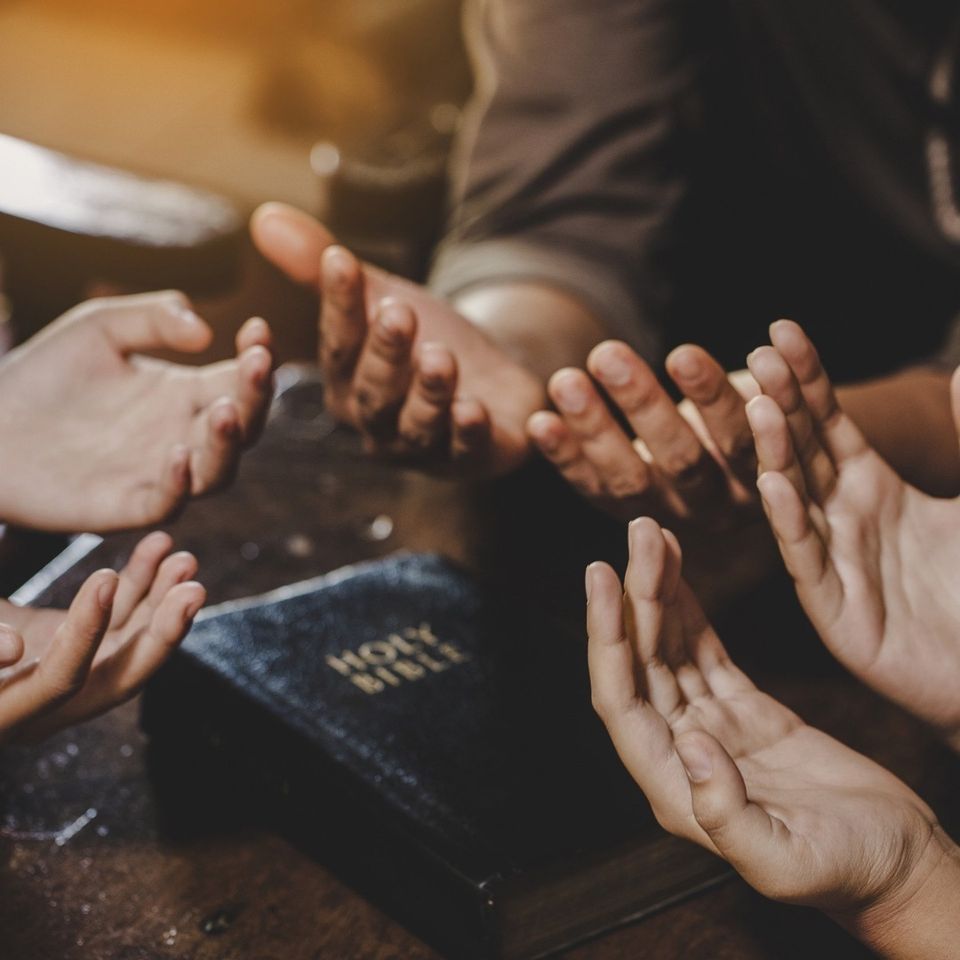
A MESSAGE FROM OUR CHAIRMAN
Reverend Vasco Perry
You have come to the right place at the right time! I truly believe that. With God, there are no coincidences; therefore, all things are ordained, even your presence right here. With that truth in mind, I welcome you and ask that you please allow me a few moments to share a thought with you.
When was the last time you were surprised by an event or experience that had the fingerprints of God all over it? Something that was out of the ordinary and totally unexpected? Take a journey to 1 Kings 17:7–24. Elijah had recently prophesied that a drought would visit Israel for the next few years. Interestingly enough, the hardships of the drought did not spare the prophet, and sustenance, though provided, was not lavish. God miraculously provided ravens to feed Elijah, but the brook on which he depended for liquid nourishment dried up (vs 7). God then led Elijah to a widow who was a Sidonian for his new source of sustenance. This is interesting because Jezebel, who in many ways brought or continued the wickedness in Israel, was also a Sidonian. In this act, God showed that even in the den of iniquity and godlessness, He can still turn hearts towards Him.
This widow cared for Elijah, sharing with him in the same manner she shared with her beloved son. Her kindness opened space for her to become both a miracle receiver and a miracle replicator. The oil never ran out. The flour never ran out. You may recall that her outlook on life prior to meeting Elijah was bleak. She had mentally prepared for her death as well as her son’s death. But now, she found a new source of life. Isn’t that like God? Once we open our space to receive God, He is always willing to surprise us with miracles.
It continued.
Some time later, her son died. The treasure of her life was taken from her. What a harsh reminder of the cruel realities of life. This was not a sudden death; she had to watch his life slowly ebb away. The Bible puts it this way: “Some time later the son of the woman who owned the house became ill. He grew worse and worse and finally stopped breathing.” Her outburst at Elijah was heart-wrenching: “What do you have against me, man of God? Did you come to remind me of my sin and kill my son?” These two questions no doubt floored Elijah. His response was epic and moved heaven.
Three takeaways I notice here:
1. When you open your space to God, He just keeps performing miracles. That which is meant to bring you pain and calamity, He simply turns around to become blessings and favor.
2. This woman, though in the presence of God and experiencing the goodness of God, still needed convincing of God’s power and greatness. Note her response in verse 24: “Now I know….”
3. This was great training ground for Elijah. A bigger test was waiting ahead, and he needed to know how to call on God for a miraculous move even when the circumstances looked impossible.
Both Elijah and the widow were surprised by God because they opened themselves for God to work miraculously in their lives. I believe that we too can experience that today. Let us agree to at least try.
Be divinely blessed.
When was the last time you were surprised by an event or experience that had the fingerprints of God all over it? Something that was out of the ordinary and totally unexpected? Take a journey to 1 Kings 17:7–24. Elijah had recently prophesied that a drought would visit Israel for the next few years. Interestingly enough, the hardships of the drought did not spare the prophet, and sustenance, though provided, was not lavish. God miraculously provided ravens to feed Elijah, but the brook on which he depended for liquid nourishment dried up (vs 7). God then led Elijah to a widow who was a Sidonian for his new source of sustenance. This is interesting because Jezebel, who in many ways brought or continued the wickedness in Israel, was also a Sidonian. In this act, God showed that even in the den of iniquity and godlessness, He can still turn hearts towards Him.
This widow cared for Elijah, sharing with him in the same manner she shared with her beloved son. Her kindness opened space for her to become both a miracle receiver and a miracle replicator. The oil never ran out. The flour never ran out. You may recall that her outlook on life prior to meeting Elijah was bleak. She had mentally prepared for her death as well as her son’s death. But now, she found a new source of life. Isn’t that like God? Once we open our space to receive God, He is always willing to surprise us with miracles.
It continued.
Some time later, her son died. The treasure of her life was taken from her. What a harsh reminder of the cruel realities of life. This was not a sudden death; she had to watch his life slowly ebb away. The Bible puts it this way: “Some time later the son of the woman who owned the house became ill. He grew worse and worse and finally stopped breathing.” Her outburst at Elijah was heart-wrenching: “What do you have against me, man of God? Did you come to remind me of my sin and kill my son?” These two questions no doubt floored Elijah. His response was epic and moved heaven.
Three takeaways I notice here:
1. When you open your space to God, He just keeps performing miracles. That which is meant to bring you pain and calamity, He simply turns around to become blessings and favor.
2. This woman, though in the presence of God and experiencing the goodness of God, still needed convincing of God’s power and greatness. Note her response in verse 24: “Now I know….”
3. This was great training ground for Elijah. A bigger test was waiting ahead, and he needed to know how to call on God for a miraculous move even when the circumstances looked impossible.
Both Elijah and the widow were surprised by God because they opened themselves for God to work miraculously in their lives. I believe that we too can experience that today. Let us agree to at least try.
Be divinely blessed.




